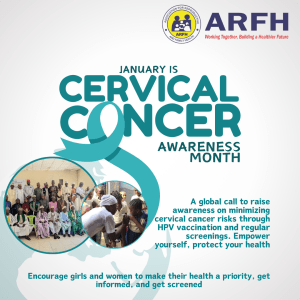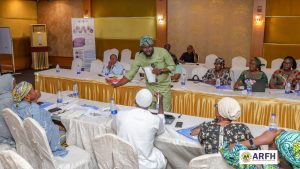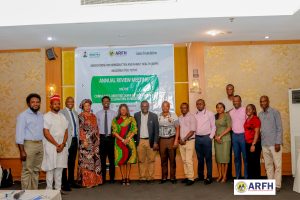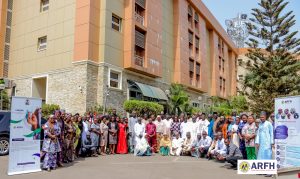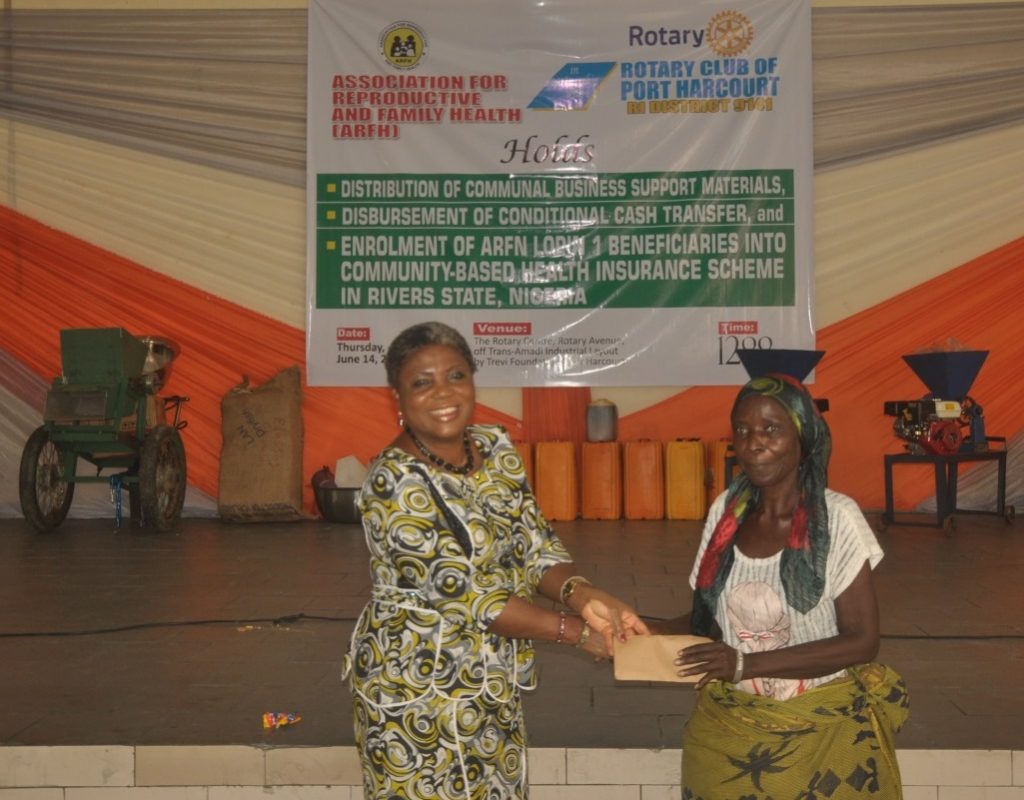
ARFH is currently implementing the USAID supported Local Partners for Orphans and Vulnerable Children in Nigeria Project in Region One (ARFH-LOPIN 1 Project) across three States (Akwa-Ibom, Lagos and Rivers) in 17 Local Government Areas (LGAs). The project goal is to mitigate the impact of HIV/AIDS on children and their families through a multi-sectoral and sustainable approach with the following Objectives:
- To improve the systems & structures at community, LGAs and State in providing responsive care, protection and support services to OVC and HHs.
- To improve organizational and technical capacity of local Nigerian partners to offer services to OVC and their families.
- To facilitate local Nigerian CBO partners to engage more effectively with Local Governments and the Private sector (PPP).
The project has established community structures such as Child Protection Committees, Community Quality Improvement Teams (CQIT), Village Savings and Loans Associations (VSLAs) in order to provide a support system for beneficiaries. In addition, ARFH is also strengthening the organizational and technical capacity of implementing partners at the State and Local Government levels, through trainings and provision of desktop computers with accessories and installation of NOMIS for data collation and reporting to improve their performance. Over 17,000 Beneficiaries comprising of Orphans and Vulnerable Children and Caregivers have accessed care and are certified to be Safe, Stable, Schooled and Healthy.
Another innovation led by ARFH under this project is the Conditional Cash transfer programming (CCTP), which is a form of humanitarian response, designed to address basic needs, protect, strengthen and restore livelihoods of caregivers. This intervention is targeting what we term as ‘Most Vulnerable Households’ enrolled on the Project. To enhance sustainability, it compliments other forms of established assistance programmes in the project such as the Village Savings and Loans Associations (VSLA), Household Economic Strengthening (HES), Health Insurance Scheme, Emergency Health & Education Support, Parenting Skills and Nutrition Support structured to facilitate care plan achievements for the beneficiaries.
The on-going Conditional cash transfers(CCT) are given to eligible recipients for a specified purpose, against specific conditions, such as food support, starting a business, attending health care services or sending children to school, in addition to developing savings culture to build their assets. The Education conditions will include school enrolment, regular school attendance and retention, with good performance, tracked through school progression during school/home visits. In addition, the Caregivers fora will serve as a platform for the development of Better Parenting Skills, required to protect the children from ‘harsh punishment’ and promote their safety, from all forms of abuse. The ongoing partnership with the National Population Commission will facilitate the issuance of Birth certificates to children enrolled on ARFH-LOPIN 1 Project.
This cash transfer program seeks to build and strengthen economic resilience of households that require two or more levels of intervention to ‘stabilize and grow’ through a cocktail of support, including consumption/food support. This category of enrollees are the ‘Most Vulnerable Households’ (including Child Headed Households). They are the focus of the Cash Transfer Program (CTP) of ARFH. This is in line with the provisions of ‘PEPFAR Guidance for Orphans and Vulnerable Children Programming 2012’
“Consumption support interventions are direct transfers of resources, usually in the form of cash, to families in order to support basic needs of household members, particularly children. These transfers may come with conditions, with households engaging in specific behaviors to continue accessing the transfers.Consumption support is most appropriate for the most vulnerable families (“families in destitution”) and aims to build their capacity to pay for basic necessities. PEPFAR OVC programs should prioritize supporting governments to initiate, expand, or be innovative in their social protection initiatives to better serve the needs of OVC families”.
This intervention of the ARFH-LOPIN1 Project will complement the Social Investment Program of the Federal Government of Nigeria in Akwa Ibom, Lagos and Rivers States. A total of 750 Beneficiaries have been assessed and placed on the conditional cash transfer intervention of N5,000 per month and it will span for six months, they have also been linked with the Village Savings and Loans Associations (VSLA) and provided with financial literacy trainings by the Lift Above Poverty Organization (LAPO).Membership of VSLAs has increased access to funds to meet unexpected expenditures while assisting them to develop ‘Savings and asset building Culture’. At the end of the six months cash transfer program, the beneficiaries will be provided with business start-up support based on their preferred businesses, their skills as well as the market survey of thriving businesses in the locality to enable the Caregivers meet the basic needs of their children in a sustainable manner. The ‘trickle down’ effect will be increased access to food, education and health services, through referrals and linkages.
The ARFH-LOPIN 1 Project has also enrolled the CCT Beneficiaries on the Community Based Health Insurance Scheme (CBHIS) to reduce morbidity and mortality traceable to poor health seeking behaviour, due to financial constraints. The Beneficiaries have uninterrupted access to quality health services (HTS, ART, Delivery and treatment of ailments etc), in addition to emergency health and education support to facilitate care plan achievements in line with the key benchmarks.
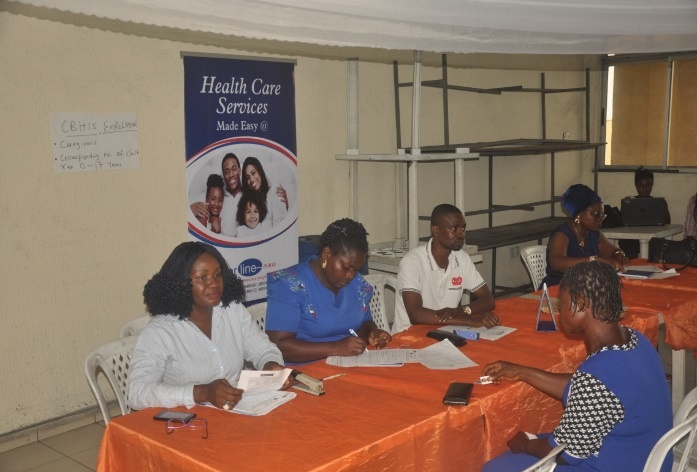
These multi-prong interventions of ARFH-LOPIN 1 Project have strengthened the resilience of ‘most vulnerable households’ enrolled on the project, in addition to increasing access to health, education, protection and food security.The Conditional Cash Transfer (CCT) and Community Based Health Insurance Scheme (CBHIS) being implemented by ARFH, with funding support from USAID, have complemented the laudable Social Safety Net interventions of the Federal Government of Nigeria.

